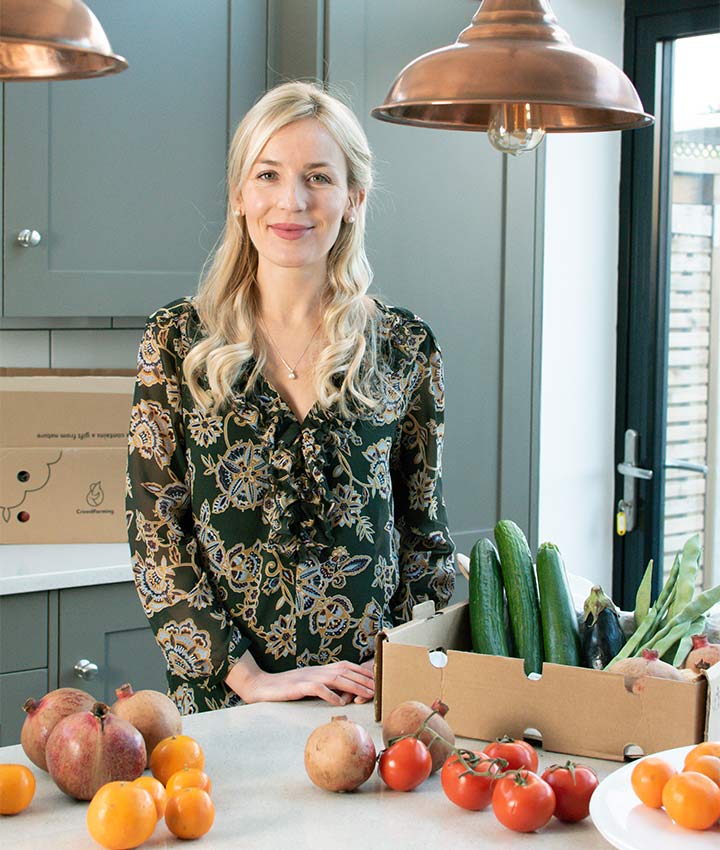The term ‘organic’ has been making waves in both the culinary, nutrition and environmental world. But is investing in organic food worth the extra buck? The production of organic food has been defined as having a focus on three key areas, the sustainability of soil, the environment and human health (1). While the legislation for organic food differs between countries, at least 95% of the ingredients must meet the EU Organic Regulations in order for a food to display the EU organic logo (2). But does organic food translate into nutritional benefits?
Let’s dive into the research of the organic world…
1. May be higher in some nutrients
Did you know that organic farming may affect the nutritional density of the food we eat?
Exciting research assessing 343 peer-reviewed studies discovered that organic crops contained 60% more antioxidants such as polyphenols in comparison to their non-organic counterparts. The authors concluded that enjoying organic fruit, vegetables and cereals has the potential to provide the level of antioxidants equal to consuming 1-2 more portions of fruit per day (3). It’s thought that organic crops may increase their antioxidant concentration as a natural protective mechanism against pests. A further study illustrated that organic milk provided greater concentrations of essential omega-3 fats, iron, vitamin E and conjugated linoleic acid (CLA), however, it’s important to note that it also came with lower levels of other nutrients such as iodine and selenium. It was also noted that the nutritional differences may have been due to the cows being grass-fed rather than the overall organic production per se (4). Nevertheless, incorporating organic food within the diet may mean you can enjoy an extra boost of some nutrients!
2. Reduces our exposure to synthetic chemical pesticides
Enjoying organic food is an easy way to say goodbye to synthetic pesticides. In fact, research has shown that pesticide residues were four times less likely to be present in organic crops. It also showed a 48% lower concentration of the toxic heavy metal cadmium, along with lower nitrogen concentrations (3). Further research illustrated that a Mediterranean-style diet came with a 10 times higher pesticide concentration in comparison to the same diet made up of entirely organic foods (5). If looking to reduce exposure to synthetic chemical pesticides, then including some organic food within the diet can be a fast-track way to do this.
3. It may benefit the environment in several ways
Organic farming has a focus on promoting sustainability, crop rotation along with other techniques to maintain soil health. It may also be kinder to nature resulting in a 50% greater plant, insect and bird life compared to conventional farming (6). Therefore, the production of organic food can be more beneficial for biodiversity and has a focus on the wider environment (7). Furthermore, the use of chemical pesticides is severely limited in organic farming, which can significantly reduce environmental pollutants spreading in nature such as waterways. Some are concerned about the environmental impact of genetically modified crops, and the benefit of organic farming is that it is absent of these. Whilst there can be complexities and debate when it comes to the impact of farming practices on the environment, one thing’s for sure, the conversation about how we can best nourish ourselves and the planet with organic food is far from over!
4. May help to reduce food waste at home
It appears that the highest concentration of pesticides resides in the skin of fruits and vegetables (8). Despite the ability to remove 41% of pesticide residues by washing fruit and vegetables in water, peeling the skin can remove twice the amount (9). As the peel is a nutrient-dense part of the plant, providing a rich source of fibre, nutrients and antioxidants, it seems a waste to throw this away (10,11). Opting for organic food means you can enjoy the whole fruit or vegetable with significantly less pesticide exposure.
5. You can enjoy farm-to-fork dining!
Platforms such as CrowdFarming allow consumers to purchase their organic produce directly from the farmer, which is a great way for consumers to know exactly where their food is coming from, and it helps the farmers too. Make healthy cooking a breeze by combining this fresh organic produce with Panasonic’s time-saving kitchen appliances.
References:
1.http://www.ifoam.org/en/organic-landmarks/definition-organic-agriculture
2.https://agriculture.ec.europa.eu/farming/organic-farming/organics-glance_en#legislation
3.https://pubmed.ncbi.nlm.nih.gov/24968103/
4.https://pubmed.ncbi.nlm.nih.gov/26878105/
5.https://pubmed.ncbi.nlm.nih.gov/34718382/
6.https://besjournals.onlinelibrary.wiley.com/doi/10.1111/j.1365-2664.2005.01005.x
7.http://www.ifoam.org/en/organic-landmarks/definition-organic-agriculture
8.https://www.ncbi.nlm.nih.gov/pmc/articles/PMC3907644/
9.https://pubmed.ncbi.nlm.nih.gov/25005864/
10.https://pubmed.ncbi.nlm.nih.gov/35832524/
11.https://www.sciencedirect.com/science/article/abs/pii/S0271531703001842






















